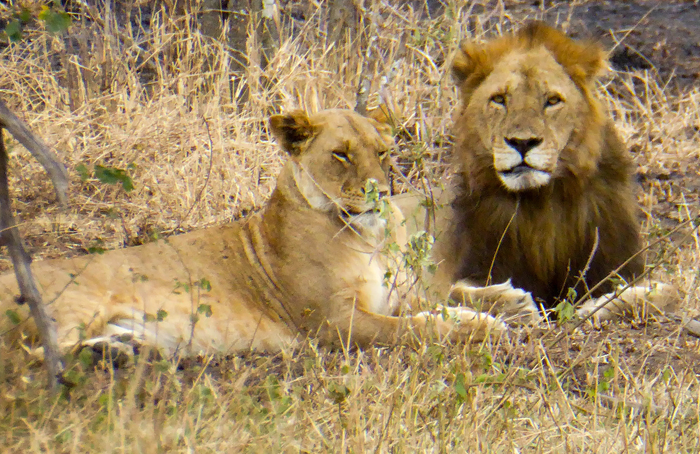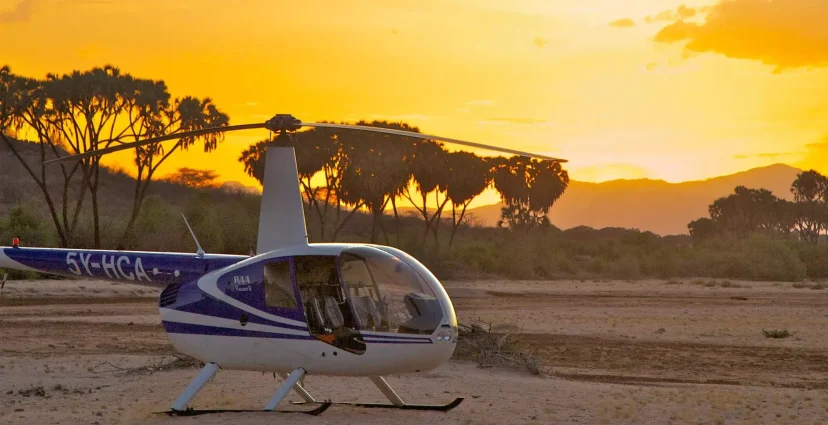Best News On Deciding On Kenya Day Tours
What Is The Most Efficient Way To Get Around Mombasa When On Vacation?Understanding the various transportation options in Mombasa is essential to have a successful and enjoyable holiday. Here are a few important points to consider for your Mombasa Kenya holiday.
1. How to get to Mombasa
Moi International Airport (MBA) The main airport of Mombasa is situated in Moi. It handles both international and domestic flights. Mombasa has numerous flights departing from and to major airlines.
by train. The Madaraka Express, operated by Kenya Railways, offers a comfortable, modern rail service connecting Nairobi with Mombasa.
Bus The bus companies like Coast Bus and Modern Coast offer service between Mombasa to other major cities in Kenya.
2. Local Transport in Mombasa
Taxis and ride-hailing services are available in the abundance. Uber and Bolt are two ride-hailing services that are operating in Mombasa. They provide easy methods of getting around.
Tuk-tuks are three-wheeled cars that are well-known and inexpensive to travel in cities. They are a great option to travel for short distances.
Matatus is a form of shared minibus which follows a specific route. It is the most frequent public transportation. The buses are affordable but crowded, and can be less comfortable.
Boda bodas: Motorbike taxis may be used for fast and convenient travel, especially in areas that have a lot of traffic or short distances.
3. Car Rentals
Rental services for cars are available at the airport and within the city. Local and international car rental companies provide a variety of cars. It is important to be conscious of driving rules in your destination and local traffic regulations.
Chauffeur Service: If you do not want to drive, a chauffeured car rental service is also available.
4. Ferry Services
Likoni Ferry links Mombasa to the mainland south of the city. It is crucial to access the southern beaches. It is completely free for pedestrians. Vehicles are required to pay.
5. Day trips and excursions
Tour operators: Many tour operators arrange excursions to popular tourist destinations such as Fort Jesus, the Mombasa Marine National Park and Fort Jesus as well as close beaches like Diani and Nyali. These excursions typically include transportation.
Public Transport: Independent travelers can reach different attractions by using matatus, taxis and Tuk-tuks.
6. Walking and Cycling
You can rent bicycles in certain areas, and particularly on beaches along the coast.
Walking: Walking is possible in a few areas of Mombasa particularly in the Old Town and along the beaches.
7. Tips for travelers
Safety: Always select trustworthy taxi companies and avoid using public transportation at late at night. You must be cautious about your valuables.
Negotiation is important for taxis and tuk tuks. Meters aren't used in most cases.
Traffic: A lot of traffic is anticipated during peak times around the Likoni Ferry, central business district, as well as other areas.
Making the right arrangements will ensure that you have a stress-free holiday in Mombasa. Have a look at the top Airport transfer to Mombasa for website info including tour company in kenya, luxurious african safari, tour and travel company, safari trips in africa, african safari kenya, kenya tour operator, safari and tours, tour and travels, africa in kenya, kenya safari holiday and more.

What Are The Weather Considerations Do I Need To Be Aware Of When I Am Traveling To Mombasa, Kenya?
Knowing the weather patterns of Mombasa is essential for packing your bags and getting the best enjoyment of your vacation. Here are the top weather considerations.
1. Climate Overview
Mombasa is blessed with an arid climate with summer temperatures that are high throughout the year. Expect warm temperatures between 24degC to 32degC.
2. Seasons
It is the hot and humid season from November to April. The peak tourist season is January and December.
Long rains (April through June) The rainy season can bring heavy rainfall and occasional thunderstorms. The roads may be muddy, making them difficult to drive on. It is low season for tourists.
The coldest time of the year is from June to October in which humidity and temperatures are the lowest. It's a mild weather, perfect for outdoor pursuits.
Short Rains (October to November): Short rain showers that are less intense occur during this period. The rains typically last for few minutes and are then followed by sunny skies.
3. Packing tips
Lightweight Clothing: Bring lightweight, breathable clothing such as linen and cotton to keep cool in the humid weather.
Take rain gear with you if you're traveling during the season of rain. This includes a waterproof jacket as well shoes.
Sun protection wearing a hat with a big brim, wearing sunglasses and wearing light clothes to protect your skin provide protection from sun.
Swimwear: Make sure you bring your swimsuit at all times you visit the hotel pools and beaches.
4. Weather Specific Activities
Beach Time. The best time to go to the beach would be in the cooler months (June to October), when temperatures are mild and the conditions on the ocean are optimal.
Water Sports: For diving, snorkeling, and other water sports, the clear and calm waters from November through March are the best time to do it.
Wildlife viewing: Now that the weather gets better, it is a great time to go on safaris and wildlife excursions.
5. The Health Considerations
Hydration: The scorching and humid climate calls for you to be well-hydrated. Take plenty of fluids especially when you're spending time outside.
Heat-Related Illnesses: Be aware of the possibility of heat exhaustion and heatstroke. Take breaks in the shade, wear loose-fitting clothes, and avoid strenuous activities during peak heat.
6. Travel Adjustments
Traveling during the rainy season: Prepare yourself for delays in travel during heavy rains. Some roads may be impassable and outdoor activities might be restricted.
The rainy season can lead to delays to flights. Be conscious of your travel schedule and make contingency plans.
7. Environmental Concerns
Natural Hazards: Be aware of the possibility of flooding during heavy rains. Be aware of current weather conditions and seek local advice on security.
Tide Awareness: If you are planning activities at the beach, be mindful of the tides, which may vary dramatically. Check tide times to ensure that you are safe when beachcombing and swimming.
If you are aware of these weather-related considerations it will help you plan your holiday activities ensure you are packing appropriately and remain safe during your time in Mombasa. View the top best holiday destinations in kenya for website recommendations including kenya safari and beach, africa and safari, mombasa safaris kenya, kenya safari and beach packages, kenya travel, kenya holiday packages, holiday packages mombasa, safari excursions, mombasa tours, safari company kenya and more.

What Environmental Responsibility Should I Be Aware Of When I Am On My Time In Mombasa Kenya?
It is crucial to take care of the environment when holidaying in Mombasa. This will ensure the beauty and diversity of the area. Think about these environmental obligations:
1. Sustainable Accommodation
Eco-Friendly Hostels: Choose hotels that adhere to sustainable practices. Look for certifications like Eco-Tourism Kenya or other eco-labels.
Resource Conservation: Participate in hotel initiatives to save water and energy. Reuse linens, towels and towels. Also, turn off the lights and air conditioner when they are not in use.
2. Responsible Monitoring of Wildlife
Be respectful of wildlife. Stay at the distance of animals so as not to disturb them. Follow the guidelines provided by the guide.
Beware of feeding wildlife: Feeding animals can disturb their natural diet.
Leave No Track: Never litter in wildlife parks or preserves. Take your trash home and dispose of it properly. it.
3. Plastic Reduction
Beware of plastics that are intended for single use. Keep a water bottle that is reusable or shopping bag as well as the utensils.
Help local initiatives locally. Participate in or help the local beach cleanup effort and organizations working to reduce the pollution caused by plastic.
4. Water Conservation
Use Water Wisely: Mombasa experiences water scarcity problems. Switch off the water taps and take a shower that is shorter.
Eco-Friendly Product: Reduce the impact of water pollution using biodegradable, sustainable products.
5. Energy Conservation
Reduce energy use: unplug electronic equipment when not in use and restrict the usage of air conditioners.
Help support renewable Energy: Look for accommodations and tour operators who use renewable sources of energy.
6. Sustainable Transportation
Public Transportation: If you can, minimize your carbon footprint with public transportation like buses and matatus.
Consider short-distance walking or renting bicycles. Some areas have eco friendly taxis.
7. Supporting Local Business
Buy Local: Buy souvenirs, craft items and even food items locally to support local companies.
Fair Trade: Select fair-trade certified products to ensure that farmers from the local area are paid fairly.
8. Environmental Education
Learn and share: Inform yourself about the environment in your area and conservation efforts. Share what you have learned to help raise awareness.
Respect Local Cultures : Understand and respect local traditions, practices, and beliefs related to conservation of the environment.
9. Marine Conservation
Responsible Snorkeling and diving: Avoid touching or walking on coral reefs. Make sure you use sunscreen safe for reefs to protect marine life.
Do not throw trash into the sea. Join marine conservation programs or support them.
10. Ethical Souvenirs
Avoid Wildlife Products. Do not purchase products that are made from endangered species like tortoiseshell and ivory.
Sustainable Materials: Choose products made of recycled or sustainable materials.
11. Participate in Conservation Activities
Consider volunteering in community tourism or conservation initiatives.
Support NGOs: Donate to or support local NGOs as well as conservation groups working to protect the environment.
12. Responsible Travel practices
Size of Group The purpose of traveling in small groups is to minimize environmental impact.
Eco-Tours - Select tour operators that are committed to sustainability and eco-friendly practices.
When you keep these environmental obligations in mind, it's possible to make a contribution to the protection and beauty of Mombasa and the biodiversity of the region for future generations. Have a look at the best Airport transfer to Mombasa for more recommendations including african safari packages, trips to kenya, mombasa tour companies, kenya travel packages, african safari excursions, trip tour companies, tour mombasa, mombasa travel agency, safari trips in kenya, tour company in kenya and more.
